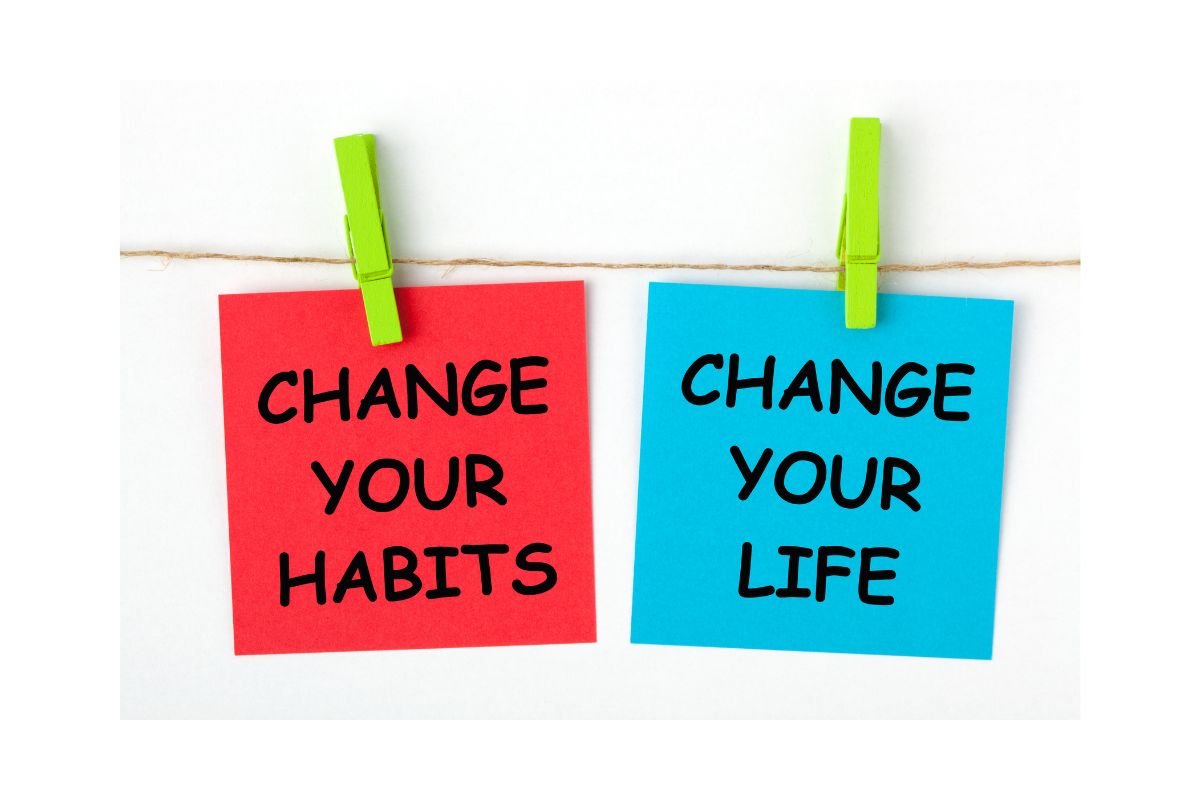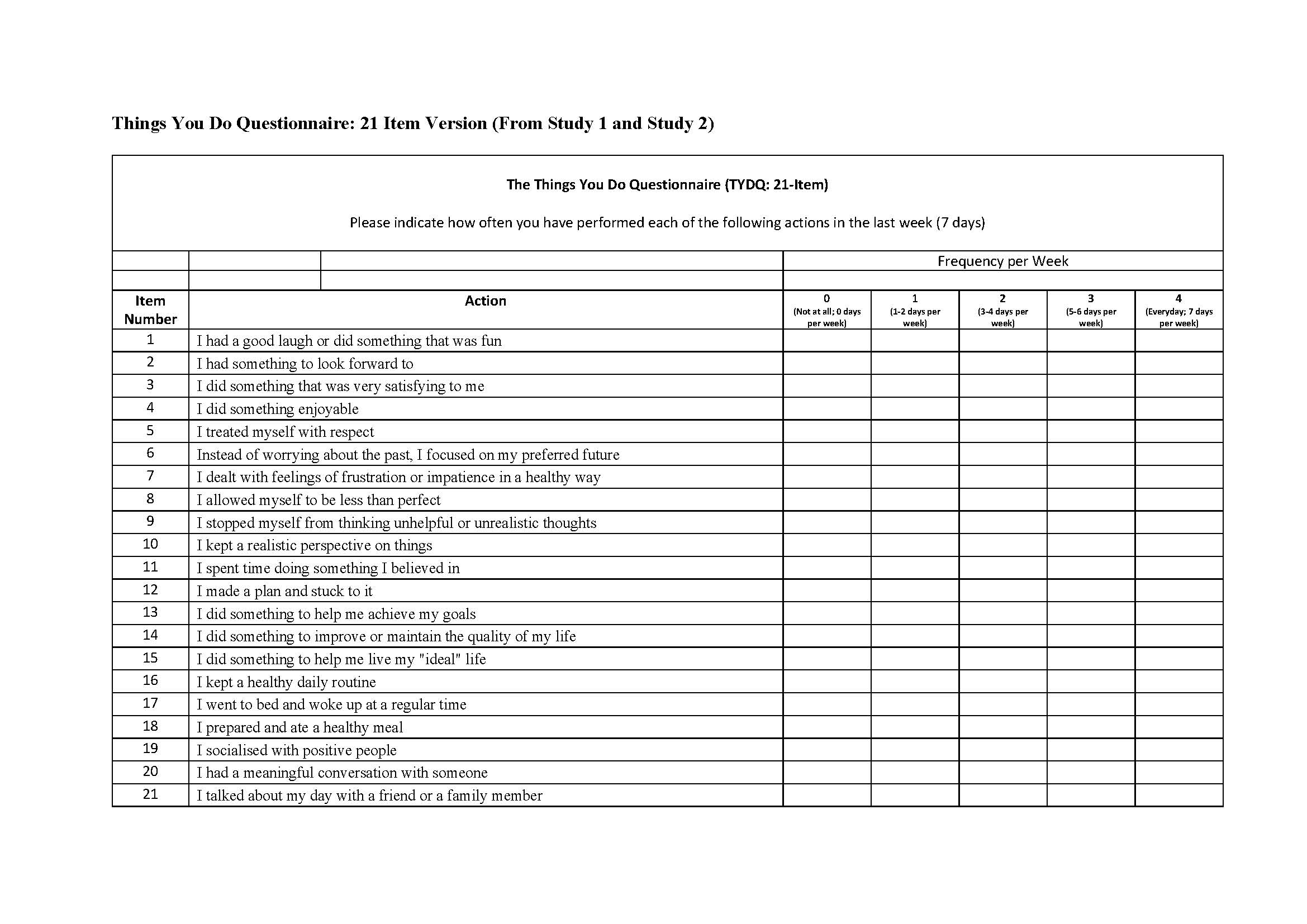
If you’ve heard me speak on the topic of mental health, you know I talk a lot about mentally healthy habits. A recent piece of research by a team out of Macquarie University provides further guidance on what those habits should be. Reading time ~ 7 minutes.
I don’t think it is controversial to say that our daily/weekly/monthly habits, routines and rituals influence our health and wellbeing. Exercise regularly = improved fitness. Invest regularly = improved financial situation. Meditate regularly = improved psychological health. Study regularly = improved academic outcomes.
In fact, in my relatively short time in the productivity/performance space, I’ve noticed a convergence of advice encouraging people to learn how to build good habits as the basis of making improvements across multiple areas of life. This convergence of advice is reflected in my own teaching on the topic – e.g. my “12 habits to balance wellbeing and productivity” presentation.
Even so, it is pleasing when one encounters published research that supports this view and provides further insights into what kinds of daily actions promote good outcomes.
I present to you “Measures of Daily Activities Associated With Mental Health (Things You Do Questionnaire): Development of a Preliminary Psychometric Study and Replication Study” by Titov et al 2022.
The researchers in this study sought to understand what daily and weekly actions are most strongly associated with good psychological health (combining reduced distress with improved life satisfaction).

What did they do?
They started by building a large list (>500) of actions that they expected would be associated with good psychological health. They drew these from therapy models, healthy habits, subject matter experts and therapy tools. They then spent time narrowing that list down by sorting actions into categories and removing duplicates. They ended up with a final list of 96 actions.
They then conducted 2 large surveys (6000+ participants in total) in which participants reported on how often they engaged in those actions. They also measured participants’ psychological health (depression, anxiety and life satisfaction).
Statistical techniques were then used to determine which actions were most strongly associated with psychological health and whether a subset of those 96 actions could be combined to predict psychological health. Basically, could a relatively small subset of those 96 actions predict differences between participants in terms of their psychological health?
By the time they finished this process, they found that 21 items, reflecting 5 underlying factors could explain between 30-40% of the variation between individuals in psychological health. 30-40% might not sound like a lot, but given that differences between individuals in terms of psychological health are the result of many, many factors, the ability to predict up to 40% of that through simple daily/weekly actions is actually quite impressive.
So what were the factors and items?
The five factors, with example items were:
- realistic thinking (‘I kept a realistic perspective on things’)
- meaningful activities (‘I did something that was very satisfying to me’)
- goals and plans (‘I did something to help me achieve my goals’)
- healthy habits (‘I went to bed and woke up at a regular time’)
- social connections (‘I talked about my day with a friend or a family member’)
They even turned the 21 items into a questionnaire:
What does this all mean?
What is really pleasing to me, reading through these items is that:
- the daily actions identified in their research are consistent with what we teach in counselling, in mental health programs like Be Well Plan and in campaigns like Good Vibes Experiment
- that daily and weekly actions accounted for a fairly chunky amount of the variation between individuals in psychological health (~ 30-40%), meaning you could expect meaningful improvements in psychological health from increasing the number and frequency of these actions in your life
- the actions aren’t overly complex and can be learned fairly easily
- they found the ideal frequency of these actions is every second day or so making it feasible to activate a number of these in your life
I liked the paper so much I contacted the lead author (Nick) to congratulate the team on their work. He told me that more papers are in the pipeline that further support these five factors: realistic thinking, meaningful activities, goals and plans, healthy habits, social connections.
So if you are looking for habits that build and sustain mental health, these are sensible starting points. Look for simple ways that you can activate these in your everyday life.

Realistic thinking – start a journaling habit and finish the day with a reflection on what happened and how you can view those events from different perspectives
Meaningful activities – even if it is just 30 minutes, a few times a week, find and pursue a passion project
Goals and plans – think about the different domains of your life and set goals in each of those domains
Healthy habits – make small and regular improvements to your diet, levels of physical activity and sleep
Social connections – share something about your day with a friend, family member or colleague/peer
These changes don’t need to be big in order to be powerful. Increasingly we are seeing that how a person grows and sustains their mental health is similar to how they improve their physical health or grow their financial wealth – consistent, repeated investments of time and effort and wise action over time.
Whilst major events and changes in our life certainly play a role, it is the cumulative impact of regular actions that shape our wellbeing over time.
Some of you might wish to access the original article which you can get here: https://formative.jmir.org/2022/7/e38837/
There is an online program you can sign up for that teaches the findings of this study. You might also like this “Big 5 Self Assessment Sheet” that was based on this work.
If you want to dig further into the habits of mentally healthy and resilient people, sign up for the Be Well Plan here at Flinders.
Got questions about the study or the findings, pop them in the comments below.



